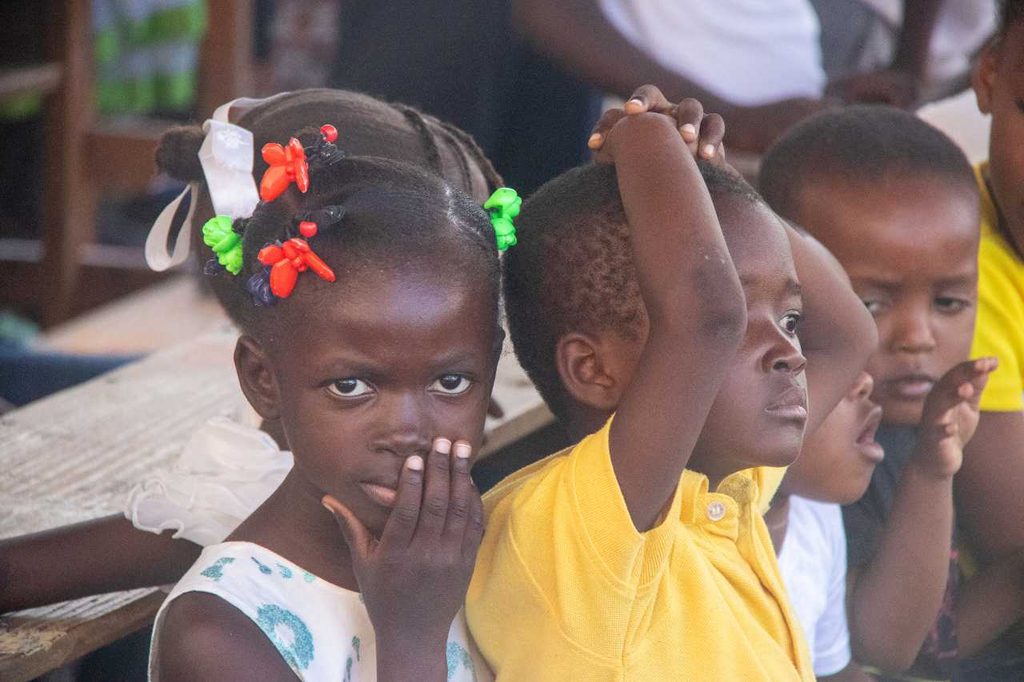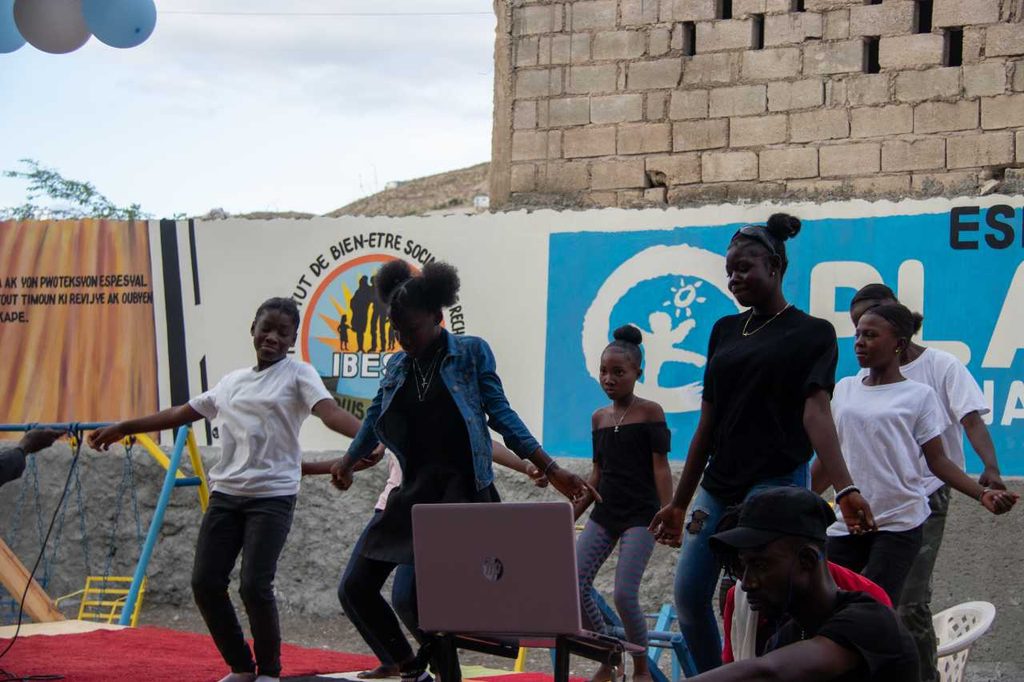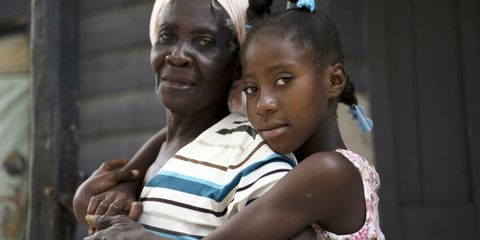Gang violence in Haiti puts girls at risk
5 March 2024Haiti’s gang crisis is placing girls at risk of hunger, gender-based violence, recruitment by organised crime groups and child marriage, according to a new study.

A needs assessment conducted in Artibonite department, where more than 34,000 people have now arrived fleeing violence in the capital, Port-au-Prince, and elsewhere in Haiti, includes testimonies from more than 500 girls and boys about their experiences of living through widespread conflict and food shortages.
Food shortages cause emergency levels of hunger
Nearly half (46%) of the population in Arbonite are now facing crisis (IPC phase 3) levels of hunger or worse. One in 7 people (15%) are classed as being in IPC phase 4 or facing emergency levels of hunger, which is the stage before famine.
A focus group carried out by Plan International found that on average, adults reduced the amount of food they ate on 6 out of the last 7 days to feed their children. Worryingly, families also reported going for an entire day without food at least twice in the last 7 days.
The study, which is published as Haiti declares a 3-day state of emergency, found that widespread violence and food shortages are forcing some girls into sexual exploitation and abuse to earn money, resulting in cases of early pregnancy, school dropouts, more violence, among others.
Food crisis increases risk of gender-based violence
During interviews and focus groups carried out by Plan International, rape and child early and forced marriage and unions were cited as the main types of sexual and gender-based violence faced by children and teenagers, especially girls. Parents also suggested that the food crisis is increasing the risk of gender-based violence, by intensifying existing inequalities in power.
“With thousands of people just one step away from famine, it is absolutely critical that the international community takes urgent action.”
Allassane Drabo, Country Director of Plan International Haiti
Other girls between the ages of 13 and 17 were reported to be forcibly married because of their parents’ inability to meet basic needs, such as food, education, and menstrual health products.
In all 3 communes included in the assessment, more than half of school aged children are out of school, with average enrolment rates of 25% in Gros Mornes, 37% in Gonaives, and 37% in Saint Michel. Poverty was cited as the most common reason for children not attending classes.
Risk of recruitment by armed gangs
Widespread poverty and a lack of economic opportunities are also leading both girls and boys to join armed gangs, with 30-50% of gang members estimated to be underage recruits, and children who have dropped out of school or unaccompanied and separated children at highest risk.
“Haiti’s gang crisis is having devastating consequences for children and teenagers, and as is all too often the case, girls are uniquely vulnerable. Widespread violence is robbing too many of their childhood, with girls being forced to swap schoolbooks and bread for guns and wedding dresses. With thousands of people in Haiti now just one step away from famine, it is absolutely critical that the international community takes urgent action,” said Allassane Drabo, Country Director of Plan International Haiti.
A scaled up response is needed

“Plan International is particularly concerned about the lack of funding for the humanitarian response in Haiti. Violence, food shortages and disease outbreaks, along with widespread displacement, have continued unabated. We need the international donor community to step up its life-saving support and enable us to scale up our work. Haiti cannot wait another day.”
Since July 2022, Plan International has been scaling up humanitarian assistance to communities impacted by the hunger crisis and gang violence in Haiti. This includes funding projects in Artibonite and the Northeast department to identify and support children in need of psychosocial support, prioritising unaccompanied or separated children, forcibly displaced people, and children who are survivors of sexual and gender-based violence.
Plan International Haiti has also set up child-friendly spaces, and provided communities with sociocultural activities and access to health services. To respond to the hunger crisis in the country, cash transfers, nutrition awareness and water, sanitation and hygiene activities have been implemented in the Southeast and the Northeast Department.
Categories: Education, Emergencies, Protection from violence


